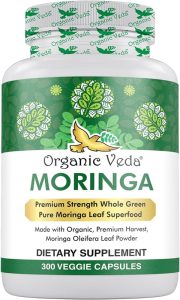After fasting, focus on consuming easy-to-digest foods like fruits, vegetables, whole grains, and lean proteins. These options can replenish nutrients and energy levels effectively.
Introducing light meals post-fast can prevent digestive issues and provide sustained energy for the body to recover. Including hydrating foods like water-rich fruits or vegetables can also help maintain proper hydration levels. Transitioning back into regular eating patterns slowly is key, so it’s best to start with small, balanced meals to avoid overwhelming the digestive system.
Be mindful of portion sizes and listen to your body’s hunger cues to support a healthy post-fast dietary routine.
Benefits Of Fasting
Fasting offers several benefits to the body and mind, making it a popular practice for many individuals seeking improved health and well-being.
Improved Metabolism
- Boosts metabolism and aids weight loss.
- Creates a more efficient digestive system.
Increased Mental Clarity
- Enhances focus and cognitive function.
- Improves overall mental alertness.
After completing a fast, it is essential to reintroduce food gradually to optimize the benefits gained during the fasting period. Choosing the right foods can support the body’s recovery and maximize the positive effects of fasting.
Importance Of Post-fasting Nutrition
After fasting, it is crucial to pay attention to your post-fasting nutrition to ensure you replenish essential nutrients and optimize your digestive system.
Replenishing Nutrients
Eating a balanced meal rich in proteins, healthy fats, and carbohydrates helps in replenishing essential nutrients post-fasting.
Include sources of vitamins like fruits and vegetables, as well as minerals like zinc and magnesium.
Optimizing Digestive System
Consume fiber-rich foods such as whole grains, lentils, and legumes to aid digestion and promote a healthy gut.
Probiotic-rich foods like yogurt or kefir can also help in maintaining a healthy balance of gut bacteria.
Hydration Is Key
Fasting can be an excellent way to detoxify the body and promote overall health. However, it’s crucial to break the fast with the right foods and beverages to avoid any negative effects. Hydration is key after fasting, and consuming the right fluids is essential to replenish the body’s lost nutrients and maintain optimal well-being.
Water Intake
After fasting, it’s vital to focus on adequate water intake. Water serves as the primary means of hydration for the body and is crucial for maintaining bodily functions. Aim to drink at least eight 8-ounce glasses of water per day. This will help to flush out toxins and rehydrate the body after a period of fasting.
Importance Of Electrolytes
Electrolytes play a critical role in maintaining proper hydration levels. After fasting, it’s essential to replenish these vital minerals to support overall health and well-being. Including foods rich in electrolytes such as potassium, magnesium, and sodium in your post-fast diet can help restore the body’s electrolyte balance and aid in rehydration.
:max_bytes(150000):strip_icc()/Stocksy_txp6b6cfdb7U9h300_Medium_59408-33424be112ad4f8086e2fbe3c214c73a.jpg)
Credit: www.byrdie.com
Incorporating Healthy Carbohydrates
After fasting, it’s important to incorporate healthy carbohydrates into your diet to replenish energy levels. Opt for whole grains, fruits, and vegetables for a balanced and nutritious post-fasting meal. These foods provide essential nutrients and support overall well-being.
After a fasting period, it is important to reintroduce nutrients back into your body, and incorporating healthy carbohydrates is essential for replenishing energy levels. The right balance of carbohydrates can assist in restoring glycogen stores, promoting satiety, and aiding in the recovery process. When it comes to healthy carbohydrates, whole grains, fruits, and vegetables are excellent choices to include in your post-fasting meal.Whole Grains
Whole grains are rich in fiber, vitamins, and minerals, making them an ideal option to incorporate after fasting. They provide a steady release of energy, keeping you feeling full for longer periods. Examples of whole grains include: 1. Quinoa: This gluten-free grain is packed with protein and contains all nine essential amino acids, making it a complete protein source. 2. Brown rice: It is a nutritious alternative to white rice, preserving the bran and germ layers, which are rich in fiber and B vitamins. 3. Oats: They are a great source of soluble fiber, which can help regulate blood sugar levels and improve digestive health. Including whole grains in your post-fasting meal will provide sustained energy while supporting overall health.Fruits And Vegetables
Fruits and vegetables are not only low in calories but also rich in essential nutrients, making them an excellent choice after fasting. They are packed with vitamins, minerals, antioxidants, and fiber, which promote optimal digestion and boost the immune system. Here are some examples of fruits and vegetables to incorporate: – Leafy greens like spinach and kale provide a rich source of vitamins A, C, and K. – Citrus fruits like oranges and grapefruits are high in vitamin C, which aids in immune support. – Berries like strawberries and blueberries are packed with antioxidants, helping to combat oxidative stress. Adding a variety of fruits and vegetables to your post-fasting meal will provide essential nutrients that promote overall well-being. Incorporating healthy carbohydrates such as whole grains, fruits, and vegetables into your post-fasting meal is a smart choice. These nutrient-dense options will replenish energy levels, promote satiety, and support your body’s recovery process. Remember to choose whole, unprocessed foods to maximize the nutritional benefits and easily assimilate them into your diet. With the right balance of healthy carbohydrates, you can nourish your body and enjoy the benefits of fasting.Lean Proteins For Recovery
After fasting, it is important to consume lean proteins for recovery and replenishment. These proteins provide essential nutrients to support muscle repair and growth, helping the body recover effectively. Incorporating lean meats, fish, dairy products, and plant-based proteins like lentils and quinoa into your post-fasting meals can aid in the recovery process.
Sources Of Lean Proteins
After fasting, it’s crucial to nourish your body with the right nutrients to aid in recovery. Lean proteins are an excellent choice as they provide essential amino acids that help repair and build muscles. Including a variety of lean protein sources in your post-fasting meals ensures a well-rounded and balanced diet. Here are some protein-rich foods you can incorporate into your meals:1. Chicken breast
Chicken breast is a popular lean protein source that is low in fat and high in protein. This versatile meat can be grilled, baked, or sautéed and easily paired with various vegetables or grains for a satisfying meal.2. Fish
Including fish like salmon, tuna, or trout in your diet after fasting provides an abundance of lean protein, omega-3 fatty acids, and vitamins. These help reduce inflammation and support brain health. Aim to include fish in your meals two to three times a week.3. Turkey
Turkey is not only a delicious lean protein option, but it also contains important nutrients like iron, zinc, and B vitamins. Opt for skinless turkey breast for the leanest cut and enjoy it in sandwiches, salads, or as a main dish.4. Greek yogurt
Greek yogurt is not only a great source of protein but also provides probiotics that support gut health. Choose plain, unsweetened varieties to avoid added sugars. You can enjoy it on its own or incorporate it into smoothies, parfaits, or as a creamy topping for savory dishes.5. Lentils
For vegetarian or vegan options, lentils are an excellent source of plant-based protein. These legumes are rich in fiber, which aids in digestion, and offer a wide range of vitamins and minerals. Include lentils in soups, salads, or stews for a hearty and protein-packed meal.6. Egg whites
Egg whites are a pure source of protein and can be easily incorporated into various recipes. From omelets to smoothies or even baking, egg whites add a protein boost without the extra fat and cholesterol found in egg yolks.7. Tofu
Tofu, made from soybeans, is an excellent protein source for vegetarians and vegans. It is also a versatile ingredient that can be stir-fried, grilled, or used in soups and stews. Tofu is not only high in protein but also a good source of calcium, iron, and other essential nutrients.Balancing Protein Intake
When it comes to consuming lean proteins, it’s important to strike a balance and ensure you’re getting enough without overdoing it. It’s recommended to consume around 0.8 grams of protein per kilogram of body weight per day. However, individual protein needs may vary depending on factors such as age, activity level, and overall health. To maintain a balanced protein intake, consider the following tips:- Aim to include a lean protein source in each meal.
- Pair your lean protein with a variety of vegetables, whole grains, and healthy fats to create a balanced plate.
- Monitor portion sizes to prevent excessive protein intake.
- Consult with a healthcare professional or registered dietitian for personalized advice based on your specific dietary needs.
- Ensure you’re hydrating adequately as proper hydration is essential for protein utilization and overall recovery.

Credit: www.womenshealthmag.com
Healthy Fats For Sustained Energy
After fasting, it’s essential to replenish your body with nutrient-dense foods, including healthy fats that can provide sustained energy. Incorporating beneficial sources of healthy fats into your post-fasting meals can help stabilize blood sugar levels and keep you feeling satiated for longer periods.
Beneficial Sources Of Healthy Fats
When selecting fats for your post-fasting meals, focusing on nutrient-rich options is key. Opt for avocados, nuts such as almonds and walnuts, seeds such as chia and flaxseeds, and olive oil.
Nutrient-rich Cooking Oils
To ensure you’re using the most beneficial cooking oils, opt for nutrient-rich choices such as coconut oil, avocado oil, and extra virgin olive oil. These oils not only provide healthy fats but also contain essential nutrients that support overall health.
Nutrient-dense Snack Options
After fasting, it’s essential to replenish the body with nutrient-rich snacks to sustain energy levels. Opt for snacks like seeds and nuts or Greek yogurt with berries to refuel your body with the necessary nutrients.
Seeds And Nuts
Seeds and nuts are a powerhouse of essential nutrients such as healthy fats, protein, and fiber. Quick and easy to grab, they make a perfect post-fasting snack option, providing sustained energy and keeping hunger at bay.
Greek Yogurt With Berries
Greek yogurt with berries offers a delicious combination of protein-rich yogurt and antioxidant-packed berries. This snack not only satisfies your taste buds but also helps in replenishing the nutrients lost during fasting.
With these nutrient-dense snack choices, you can ensure that your body gets the necessary nourishment post-fasting, promoting overall well-being and keeping energy levels high.

Credit: www.everydayhealth.com
Importance Of Mindful Eating
Chewing Food Thoroughly
Increase nutrient absorption and digestion efficiency by chewing food thoroughly.
Paying Attention To Hunger Cues
Listen to your body’s signals to avoid overeating and maintain a healthy weight.
Frequently Asked Questions On What Should Be Eaten After Fasting?
What Foods Should I Eat After Fasting?
After fasting, it is important to ease back into eating with healthy, light, and easily digestible foods. Include fruits, vegetables, lean proteins, and whole grains in your diet. Avoid fried and fatty foods, and opt for nutrient-dense options that will nourish your body.
Is It Okay To Eat A Heavy Meal After Fasting?
No, it is not recommended to have a heavy meal immediately after fasting. This can put a strain on your digestive system and may lead to discomfort. Instead, choose light and easily digestible foods to gradually reintroduce solid food into your diet.
How Often Should I Eat After Fasting?
Listen to your body’s cues and eat when you feel hungry after fasting. It is important to give your body time to adjust and not rush into regular eating habits. Start with smaller meals or snacks every few hours and gradually increase the amount and frequency as your body adjusts.
Conclusion
Incorporating nutritious foods after fasting is crucial for replenishing energy and restoring the body’s balance. By focusing on whole grains, lean proteins, and fruits and vegetables, you can sustain the benefits of fasting. Additionally, staying hydrated and consuming small, frequent meals can aid in a smooth transition back to regular eating habits.







Be First to Comment